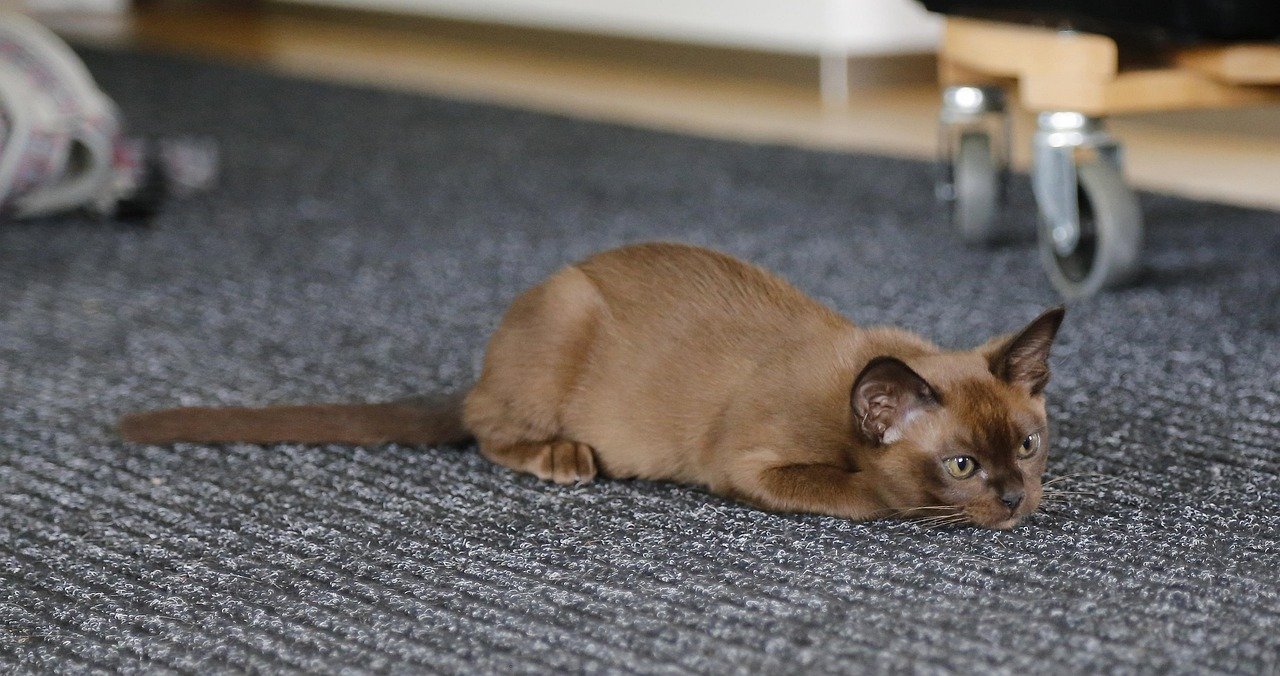Cats have long been misunderstood as aloof and independent creatures, but cat enthusiasts know there’s much more to them. In fact, some cat breeds are remarkably in tune with human emotions, often providing comfort and companionship when you need it most. These feline friends are not just pets; they’re empathetic companions who can sense our feelings and respond accordingly. Let’s explore 10 cat breeds that have an uncanny ability to connect with human emotions.
Siamese: The Vocal Comforter
Siamese cats are known for their striking blue eyes and distinctive coat patterns. But what truly sets them apart is their vocal nature and ability to communicate with their owners. These cats are highly sensitive to changes in their environment and can pick up on emotional cues from their human companions. If you’re feeling down, don’t be surprised if your Siamese cat follows you around, offering soothing meows and gentle nudges. Their social nature makes them exceptional emotional support animals, always ready to lend an ear or a paw when needed.
Maine Coon: The Gentle Giant
Despite their large size, Maine Coons are gentle giants with a heart full of love. They’re often described as “dog-like” because of their loyalty and affectionate nature. Maine Coons have an innate ability to sense when their owners are upset or stressed. They may sit by your side, offering silent companionship or a comforting purr to help ease your worries. Their calm demeanor and loving presence can be incredibly reassuring, making them wonderful emotional allies.
Burmese: The People-Oriented Companion

Burmese cats are known for their affectionate and sociable personalities. They thrive on human interaction and are often found following their owners from room to room. These cats are highly attuned to the emotions of those around them and are quick to offer comfort when needed. Whether you’re feeling anxious or sad, a Burmese cat will be there to offer a warm cuddle or a gentle paw on your hand. Their empathetic nature makes them excellent companions for those seeking emotional support.
Ragdoll: The Floppy Friend
Ragdolls are known for their striking blue eyes, soft fur, and relaxed demeanor. They’re called “Ragdolls” because they tend to go limp when picked up, making them perfect for snuggling. These cats have a remarkable ability to sense their owner’s emotions and often respond with affection and warmth. If you’re feeling stressed, a Ragdoll cat will gladly curl up in your lap, providing a sense of calm and tranquility. Their gentle nature and loving presence make them ideal companions for emotional support.
Scottish Fold: The Quiet Observer
With their distinctive folded ears and round faces, Scottish Folds are hard to resist. Beyond their adorable appearance, these cats are known for their quiet and observant nature. Scottish Folds have an uncanny ability to pick up on emotional cues and will often sit quietly by their owner’s side, offering silent solace. Their calm and gentle disposition makes them excellent companions for those who need a little emotional reassurance.
Sphynx: The Warm-Hearted Companion
The Sphynx cat may lack fur, but it certainly doesn’t lack warmth. These cats are known for their affectionate and friendly personalities. Sphynx cats are incredibly social and thrive on human interaction. They’re highly sensitive to their owner’s emotions and will often seek out physical contact to offer comfort. Whether it’s a warm cuddle or a gentle nuzzle, a Sphynx cat knows how to make you feel loved and supported.
Abyssinian: The Energetic Empath
Abyssinians are known for their playful and energetic nature. These cats are highly intelligent and curious, always exploring their surroundings. Despite their active demeanor, Abyssinians have a deep emotional connection with their owners. They’re quick to pick up on emotional cues and will often respond with playful antics or affectionate gestures. Their lively spirit and empathetic nature make them wonderful companions for those who need a little emotional upliftment.
Tonkinese: The Social Butterfly
Tonkinese cats are a delightful blend of Siamese and Burmese breeds, resulting in a social and affectionate feline. These cats are known for their outgoing personalities and love for human interaction. Tonkinese cats are highly attuned to their owner’s emotions and will often respond with comforting gestures and playful antics. Their friendly nature and ability to connect with people make them excellent companions for those seeking emotional support.
Birman: The Gentle Soul
Birmans are known for their striking blue eyes and fluffy coats. These cats have a gentle and calm demeanor, making them perfect companions for emotional support. Birmans are highly sensitive to their owner’s emotions and will often respond with affectionate gestures and soothing purrs. Whether you’re feeling stressed or anxious, a Birman cat will be there to offer comfort and companionship.
Persian: The Serene Companion
Persian cats are known for their luxurious coats and calm demeanor. These cats have a serene and gentle nature, making them perfect for those seeking emotional support. Persians are highly sensitive to their owner’s emotions and will often respond with quiet companionship and soothing purrs. Their tranquil presence and loving nature make them ideal companions for those in need of emotional reassurance.
In conclusion, cats are far more than just pets; they’re empathetic companions who have the incredible ability to sense and respond to human emotions. Whether you’re feeling stressed, anxious, or simply in need of a comforting presence, these cat breeds are there to offer love and support. Their unique ability to connect with humans on an emotional level is truly remarkable, making them invaluable companions for cat enthusiasts everywhere.

Growing up traveling and experiencing new cultures and wonders, I have had a passion for nature, adventuring, photography, and videography. I am currently working towards a BSc in Biodiversity and Ecology at Stellenbosch University, and I hope to specialise in Marine Sciences one day.
Please send any feedback to Feedback@animalsaroundtheglobe.com






